| Umělec magazine 2002/3 >> How the show got stolen | List of all editions. | ||||||||||||
|
|||||||||||||
How the show got stolenUmělec magazine 2002/301.03.2002 lepe B. T. Rubingh | sept. 11th | en cs |
|||||||||||||
|
"I wrote the following text after my stay in New York from August to October 2001. My goal was to finish the Joker Performances Project, an artwork conceived in three stages and performed in three different cities around the world: Berlin (1999), Tokyo (2000), and New York (2001).
In each city, and with no permission, an intersection is blocked off with 5,000 meters of barrier tape. In short, the performance stops daily life, addresses a specific problem in that particular country/culture and, consequently, investigates the differences in judicial systems in different parts of the world. In Berlin, ten performers blocked the intersection at Hackescher Markt for 23 minutes. The title was: “Very nice, said the joker to the king; almost finished.” It raised questions on city development. The judicial outcome was that I had to pay a donation of 250 euro to a Christian organization. No criminal record. In Tokyo, 40 performers blocked the Shibuya Intersection for eight minutes. The title was: “I’m very sorry, said the joker to the shogun, but this is funny, isn’t it?” It was a statement for young Japanese trying to break out of tightly regulated Japanese society. The outcome was a 500-euro fine, ten days imprisonment and a criminal record. What follows is a description of the experiences I had in the Big Apple. When I left for New York on August 14 none of the possible scenarios that had been running through my head matched the reality I now know. When you plan a project like Joker Performances, you try to think of every possible scenario you might be confronted with: a highly conservative judge who has never seen a modern art museum from the inside; a police officer who happens to be near the site and who gets easily confused and pulls his gun. You even think of a Mafia boss who unwittingly is trapped in the middle of the performance. You try to weigh all the risks as carefully as possible and then make your decisions. Sometimes you even modify the performance: You ask your attorney to prepare a speech that could teach even a gorilla the basics of modern art; the policeman is calmed when a smiling girl hands him a pamphlet that reads, “Art at work.” And you pray that the Mafia boss happens to have stomach pangs from drinking too many martinis the night before, forcing him to stay at home that day. On 16 January 2001, on my way to Japan for the Joker Performance exhibition, I was reading Stefan Aust’s book about the Red Army Faction (RAF), Der Baader Meinhof Komplex. This was a terrorist group that reacted radically to the post-war German political hierarchy and other situations, such as the war in Vietnam. During the flight, while reading the RAF story, paranoia struck. Since I had been arrested and convicted following the Tokyo performance, it was still unclear whether I would have problems entering Japan. Would they check my luggage? And if I am able to enter successfully, would the exhibition cause us any problems?1 I tried to put these thoughts, which are inevitable after your first more or less serious contact with the authorities, into perspective. Sometimes you succeed in calming your mind, sometimes you don’t. Aust’s book, together with my own experiences from the Joker Performances, made me aware that, although the concept of my artwork is in many ways different from basic terrorist ideas, some unmistakable parallels exist. Like terrorists, I have to prepare my performances in secrecy. Terrorists are perfectionists in their methods. I consciously try not to make the organization perfect. If the police are confronted with a perfectly organized group of people, they get very nervous. They see the possibility of organization as only being professional terrorist organization. So, because it’s my aim neither to create a terrorist group nor to upset the police too much, I keep a certain amateurish flair to the whole organization. Like terrorists, I work with the elements of shock and disorientation. The big difference is scale. There are very positive aspects of shock and disorientation. People have to rethink. They don’t know exactly what’s going on, because the situation is out of the ordinary. The big difference is that, unlike terrorists, I’m not aiming to create fear. And, like terrorists, I aim to get as much press coverage as possible.2 This was the knowledge that I had before my New York project, the knowledge I arrived with in Newark on 14 August 2001 at 10:37 a.m. The Joker project had once again taken on a life of its own. Sponsors had committed themselves to the performance. The work was to be presented in Rotterdam the following day via the Internet. Our ability to use the press, and use it effectively, had improved considerably. A good Dutch friend would come to New York to work on the European press. My press agent in Berlin would take care of Germany. My Japanese assistant was already working on the Japanese press. I was trying to use the sum of my experiences with the previous performances to make this last one even better. This one had to be the crowning achievement of the project. For the first two weeks, I mostly just walked around. I started meeting some people, but purposely avoided completely devoting myself to the performance. I just wanted to be in New York, to get to know the city. Despite this relatively easy start, I knew that I had to get to work on the basic elements right away. My first concerns were to contact lawyers to acquire an overview of the judicial aspects of the performance. I had to assemble a camera crew, if possible coordinated by a production company. I had to find photographers and, of course, complete my research of King Giuliani. I found out that New York is tough. Everybody comes to New York with a lot of plans. Everyone’s busy. A lot of them pretend they’re busy. You can’t waste people’s time. You need an introduction to get through to people. The city gives you the feeling that you’re welcome, but the next thing you know she shoots you in the knee and barks: “Go on, keep moving.” As I got used to this toughness, things started to work out for me. After a month, the camera crew was just starting to take shape. I found five photographers and about 15 performers. I got in touch with a defense lawyer who had good contacts, and I found out that the Joker Performance suited its location and, more importantly, King Rudolph (“Rudy”) Giuliani, very well. This city definitely had a King, as opposed to the former venue cities of Berlin and Tokyo, where urban development and sociological issues loomed more in the foreground. They could not boast an individual responsible for the processes. Giuliani, who had reigned over the city for the past eight years, was clearly the King, assuming responsibility for almost everything in the city.3 He was a former Kennedy fan who’d shifted to the Republican camp in the 1980s and worked as an attorney for the Reagan administration. He ended up becoming a control freak, shooting well past his idea to clean up New York. His “zero tolerance” plan aimed and shot down all “squeegees, the ‘fake homeless,’ pan handlers, sex shop purveyors, cabbies, jaywalkers, street vendors, cop-bashers, unreconstructed liberals, black radicals, black moderates, anti-Catholic art exhibitors, drunk drivers, methadone users, graffiti artists, public school bureaucrats and, of course, welfare freeloaders.”4 The city, known for its creativity and freedom and being the art center of the world, saw its own mayor trying to close down the British exhibition Sensation in the Brooklyn Museum of Art. This was definitely an interesting city for the final Joker Performance. September 10 was a cloudy and gray day. A perfect day for making telephone calls at the office on West Broadway. That night I had a quick drink with a woman from Berlin, after which I left for Croton on the Hudson. This little rich Twin Peaks kind of place (about an hour’s ride by the Metro North train from Grand Central Station) was a kind of hideaway for me when the city became too hectic. The next day I had a meeting scheduled with a lawyer. On September 11 I woke up at 8:30 a.m. The sun was shining through the bedroom window, the sky was perfectly clear. Everything looked set for a beautiful day. I had breakfast near the pool and waited for the lawyer to arrive. Our appointment was for 9:30 a.m.; she came at 9:45. I went into the kitchen to make her tea when somebody came up to me and told me not to look at the television. So I turned on the TV, and the movie began. I told the lawyer to come into the kitchen and look at the television. She immediately thought of her husband, who passed the towers in his car on his way to the courthouse every morning. She found out that he left a message on the answering machine saying that he was fine and that he would call again to tell her where she could pick him up. We decided it would be wise to drive to her place to wait for this second call. On our way, I noticed that most of the American flags were not yet at half-mast. Most of all, though, I kept looking at the blue sky. This was bizarre. The weather hadn’t changed a bit. People all over the region, all in very different situations, yet all in shock, were under this beautiful blue sky. Nature was showing her indifferent face at its very best. That day we even discussed my performance and its possible consequences, but it felt totally weird. I decided to cancel the performance. I knew that few would be able to respond positively to a disruptive art piece. And I knew that in times like these, jesters immediately lose their royal license to play the fool. I slowly realized that the terrorists had stolen the show, so to speak, in a bad way. I spent the rest of the day watching television, like people all over the world. Over the next few days, I began to understand what I had experienced; I was better able to imagine what terrorism was all about. The knowledge I had was taken to a higher level. It crossed my mind that the terrorists had been preparing their act at the same time I was preparing mine. As I explained before, there are parallels between my work and theirs. But there are also very significant differences between what they did and what I wanted to do. Nevertheless, I imagined the stress these people had been under during the previous months. There had been strong mental pressure on them for a very long time, up until the act itself. It made me think of the mental pressure I had experienced in Tokyo during the preparatory period. I had felt a heavy pressure on my shoulders throughout the rehearsal and on our way to the intersection. When I arrived I became extremely confident. I thought: “This is gonna work.” On television there was one question asked repeatedly: How could people do this? Politicians and news reporters — and soon everybody else — denounced the terrorists as purely evil men. The overall outcome of the answers simplified the matter considerably. I find it extremely interesting to look at it the other way around: Would I be able to fly an airplane into one of the Twin Towers? And what would make me do such a thing? The terrorist attacks fascinated me for two reasons. First, there’s the aesthetic value the images of the attacks possessed for me. If I forget my moral standards, I can see a certain abstract beauty in the image of the two airplanes hitting the Twin Towers. Second, there’s the influence they had on the world. In realistic terms, the outcome was not very positive. The Americans closed ranks and stood nearly united behind their president. They managed to gather an enormous alliance in the war against Afghanistan, dividing the world into Good and Evil. Many people around the world hoped America would critically review its foreign policy, but this never occurred. This makes me feel that you can never directly confront a democracy with its mistakes. Violence has a counter-effect. One of the questions the Joker project asks is: How much influence do I have as a critical artist, and how can I have as much as possible? The jester, as a critical institution, should never try to kill the king. The best possible position for him is next to the king. To try to make the whole court laugh and still transmit criticism through irony to whomever is willing to hear it. Or is there a better way? The ground under my feet had disappeared. Mixed feelings took over. Frustration that my plans had been thwarted, that my masterpiece had been taken away. Contrary feelings: that worse had happened, and that I had no right to complain. I realized the impossibility of fully comprehending the horror that happened that day. Words could not match their content. Television had turned into a 24-hour movie. Meanwhile, state agencies and politicians were working hard behind closed doors. After a week or two, I started thinking of making work around the catastrophe: a photo project of the cruel blue sky, a performance video about disorientation. Above all, I was drawn to the idea of reacting to the current political development. An Alternative Research Center. Installations had to be made in the form of commando centers, of both Al Qaida and the Pentagon. Try to find out what they were talking about. What draws them to their conclusions? How are political decisions made? Is there any form of self-critique? How influential to political careers are issues such as arms sales and the oil pipeline from Tajikistan to Pakistan? I don’t know much about the arms industry and its influence, nor do I know much about that oil pipeline. But I saw, up close, a politician being reborn and almost getting a third term as mayor of New York. Posters all over the city read “Giuliani for Mayor,” and people suddenly adored the person who had been a political dead dog only a day before. I was also taken by the idea of Giuliani as savior. And yes, he did a good job. But should you judge a politician based on a couple of weeks out of an eight-year term? Giuliani was smart enough to recognize the political possibilities, at least on the day after the attacks. The Democratic candidate, Ferrer, finally blocked his attempt at winning a third term. One thing is sure: Giuliani’s career is secure. The elections in New York were postponed. Giuliani endorsed Bloomberg, the only Republican candidate running for mayor. A businessman without any political experience who, before September 11, seemed to have no chance against his Democratic opponents. After September 11, Bloomberg won. The thing that still bothers me is that the only institution in a society that’s prepared for this kind of worst-case scenario is the government. In this case, I don’t mean the police, the firefighters, and all the other government institutions that try to put society back into shape. We would be lost without them, and we should be thankful for their deeds. My concern is mainly those government institutions that act without anyone knowing. What are the real reasons for starting a war? To what extent do they control the press? In my opinion, the press lost its controlling function in the theater of war. Government officials seemed to control of all information. It seems to me that democracy is in an unhealthy situation. I slowly developed a reaction to this political development as an artist. But then my family called me back to Holland because of my grandfather. I flew back overnight without having realized a single project, but with a shitload of experience concerning terrorism and its consequences. The future of the Joker Performances is still unclear. Plans exist to return to New York in the upcoming summer. Washington, D.C., could be the spot, but because of changes to U.S. law, Mexico City or Rio de Janeiro might be interesting alternatives. Concerning the idea about how to react in an accurate way to political developments in war-time, the joker hopes one day to tell you by realizing his devious plan. Berlin, January 2002 1. All went well. I got into the country, the Dutch embassy sponsored the exhibition, and the authorities never showed their face. 2. New York is one of the media epicenters of the world. All press agencies have offices in Manhattan. Almost every national newspaper and television network in the world has a correspondent in the city. 3. Even at times when it was very unclear what he and his city government had actually contributed to a specific situation. A clear example is Times Square. Although former Mayor Dinkins had made the deal with Disney that led to the new Times Square, Giuliani tried to take credit for it. (Wayne Barret, Rudy!: An Investigative Biography of Rudolph Giuliani, Basic Books, 2001, p. 9) 4. Wayne Barret, Rudy!: An Investigative Biography of Rudolph Giuliani, Basic Books, 2001, pp. 1–2. "
01.03.2002
Recommended articles
|
|||||||||||||
|
04.02.2020 10:17
Letošní 50. ročník Art Basel přilákal celkem 93 000 návštěvníků a sběratelů z 80 zemí světa. 290 prémiových galerií představilo umělecká díla od počátku 20. století až po současnost. Hlavní sektor přehlídky, tradičně v prvním patře výstavního prostoru, představil 232 předních galerií z celého světa nabízející umění nejvyšší kvality. Veletrh ukázal vzestupný trend prodeje prostřednictvím galerií jak soukromým sbírkám, tak i institucím. Kromě hlavního veletrhu stály za návštěvu i ty přidružené: Volta, Liste a Photo Basel, k tomu doprovodné programy a výstavy v místních institucích, které kvalitou daleko přesahují hranice města tj. Kunsthalle Basel, Kunstmuseum, Tinguely muzeum nebo Fondation Beyeler.
|








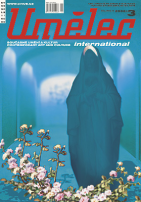

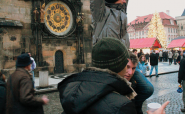
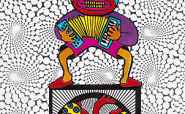
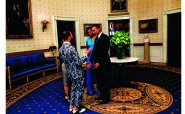
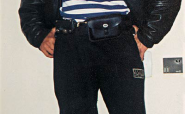
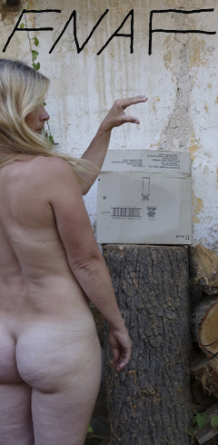











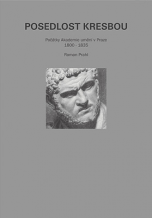
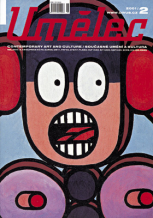
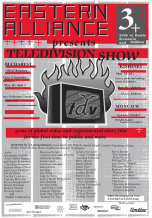
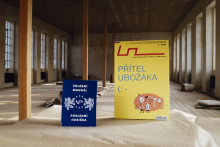


 New book by I.M.Jirous in English at our online bookshop.
New book by I.M.Jirous in English at our online bookshop.
Comments
There are currently no comments.Add new comment